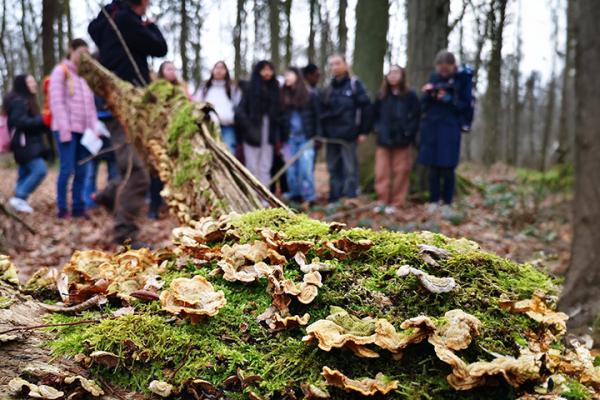The success of Spain - research has flourished since it joined the EU
Since it joined the EU, Spain’s research has expanded sharply in capacity and in outlook, according to Professor Enric Banda, former Spanish Secretary of State for Universities and Research.
The Prince Felipe Research Centre in Valencia, Spain, is one of Europe's leading biomedical research institutes. Image courtesy CIPF
How have the Framework Programmes encouraged participation in research and innovation in Spain?
‘When we joined the European Community in 1986 our research and development system was not very strong, so it was extremely useful for us to join. When countries join there is a peak in enthusiasm and this was clearly the case for the scientific community in Spain. Through encouragement by the Framework Programmes people were very pleased to work with other Europeans, so from the research and innovation point of view it was a very good opportunity. Since then, the Framework Programmes have really encouraged research and innovation in Spain in an extraordinary way.’
‘When we joined the European Community in 1986 our research and development system was not very strong, so it was extremely useful for us to join. When countries join there is a peak in enthusiasm and this was clearly the case for the scientific community in Spain. Through encouragement by the Framework Programmes people were very pleased to work with other Europeans, so from the research and innovation point of view it was a very good opportunity. Since then, the Framework Programmes have really encouraged research and innovation in Spain in an extraordinary way.’

Professor Enric Banda
Can you elaborate on what you mean by extraordinary?
‘The Framework Programmes gave us a new injection of morale, of money, of enthusiasm and of knowledge, in terms of working together with European colleagues. Of course many of our researchers were already well connected in Europe, but the Framework Programmes meant we could join new networks and take part in new projects.’
What would you see as the major benefits and successes resulting from Spain’s participation in the Framework Programmes?
‘The impact of the Framework Programmes has been enormous, particularly in integration and networking. Integration of new Member States does not only mean funding research and attending meetings; it is also about joining communities, working together and being part of a greater system. Networks with colleagues in other EU countries provide the means for collaboration and internationalisation, and science is international, after all. It has also increased access to knowledge, and resources to bring more skills and talent to Spain.’
“‘I was principal investigator for projects involving geothermal energy that wouldn’t have happened without the Framework Programmes.’
Can you give any concrete examples?
‘This was the case in many disciplines, including for my own field, earth sciences, which was not even at the core of the European programmes. I was principal investigator for projects involving geothermal energy that wouldn’t have happened without the Framework Programmes. And the fact that we had the opportunity to join European projects meant that active researchers, working at the laboratory bench, had much more mobility. They could participate in scientific meetings, with new possibilities for working together.’
How has that changed during the financial crisis?
‘The impact of the crisis has been dramatic. It has meant a very big reduction in the science budget in Spain and this has major implications. We are able to attract fewer researchers than before, some of those who came to Spain have left again and some of our own scientists have been leaving to take jobs abroad. And it has affected the basic sciences a lot. This has meant more Spanish researchers now turn to the Framework Programmes and the ERC (European Research Council) grants for support. In that sense, the Framework Programmes can help. But we cannot assume that Brussels or elsewhere will be the solution, we have to have a solid, national science budget. Particularly in a knowledge society, you need talent and innovation and those need resources.’
Weekly news alert




